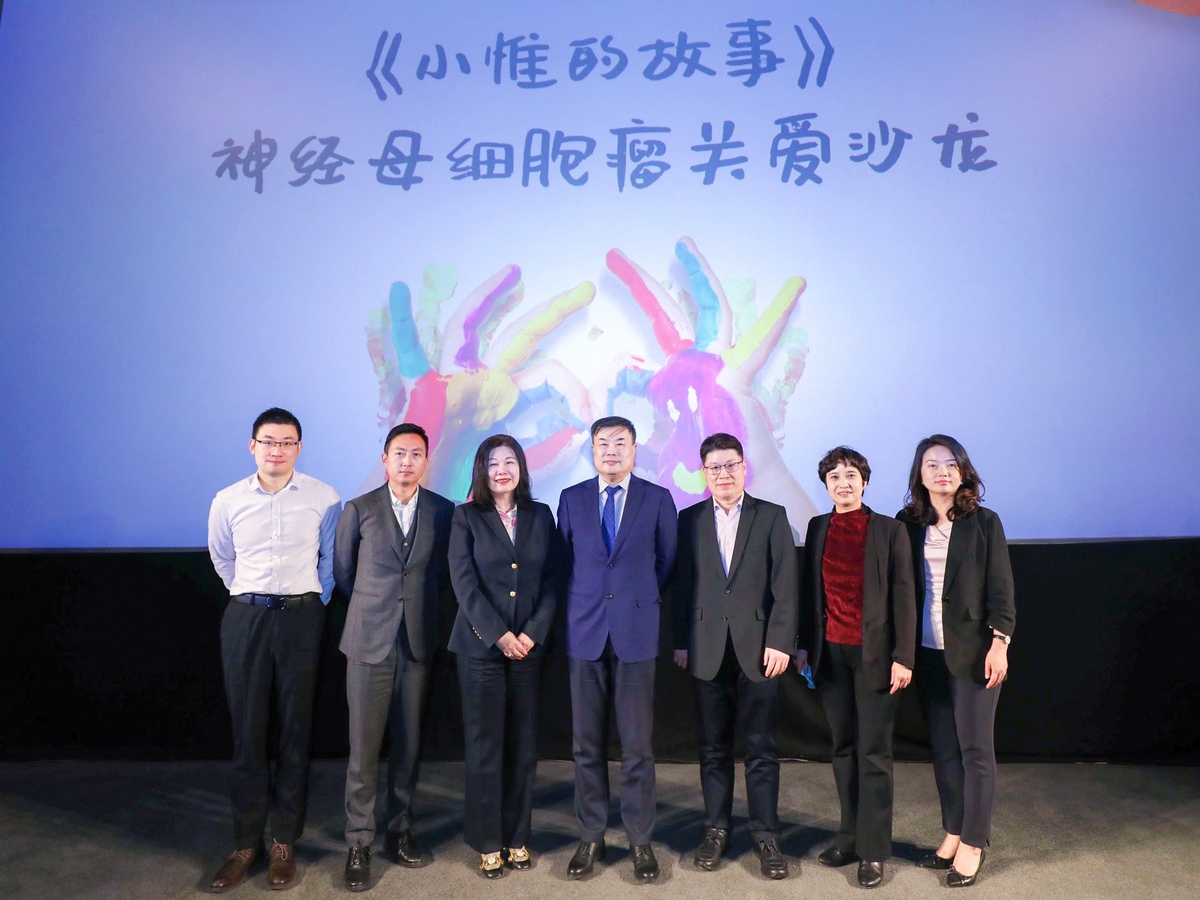BeiGene hosts awareness event on neuroblastoma


Nasdaq-listed Chinese biopharmaceutical company BeiGene hosted a public welfare salon on neuroblastoma on Sunday, aiming at raising public awareness of the disease and increasing drug accessibility to benefit more patients.
The salon invited children with neuroblastoma and their families, healthcare professionals, public welfare organizations and government authorities, to discuss the solution to cure the disease — a tumor that occurs in children.
Neuroblastoma patients are normally under 15 years old, and half of the patients of their first attack are at the age of less than 2 years old. Although it has low incidence, due to high degree of malignancy, rapid disease progression and difficult treatment, neuroblastoma is often referred to as the "king of childhood tumors".
Zhao Qiang, vice-dean of the Cancer Institute & Hospital of Tianjin Medical University, said: "Generally speaking, if treated at an early stage, children with neuroblastoma have good chances to realize good prognosis. However, in China, most of the patients have progressed to the mid and late stage by the time of diagnosis, and there are fewer treatment options, increasing treatment difficulty."
"Therefore, we appeal to society to pay more attention to the disease, help the public truly understand the disease, and offer timely assistance to more sick children," he said.
Wang Huanmin, a doctor at Beijing Children's Hospital of Capital Medical University, said "compared to developed countries, China's treatment level of neuroblastoma needs to be improved urgently. In response to challenges such as low long-term survival rate and insufficient research on innovative drugs, we hope to focus on promoting clinical research, and launch related big data analysis as soon as possible."
"Seeing my previous little patient with neuroblastoma standing here at the salon, blossoming into a healthy, beautiful young lady, is a real encouragement for me. Although neuroblastoma is an overwhelming rare tumor, it is curable. Realizing the goal for more children requires long-term devotion and joint effort," he added.
Li Zhizhong, secretary general of the Shenzhen-based Shiyu Children foundation, said: "On one hand, children with tumors urgently need new treatment discoveries, to realize complete cure. On the other hand, with the timely popularization of disease knowledge, we hope to reduce the fear from their parents and help them avoid detours. With joint efforts from society, hopefully the children can return to normal life."
Currently, there is no targeted drug for the disease on the Chinese market yet. At the beginning of last year, BeiGene worked with United Kingdom-based biopharmaceutical company EUSA Pharma to introduce a monoclonal antibody drug for neuroblastoma for Chinese patients.
Although the biologics license application of the drug has not been officially approved by the National Medical Products Administration, patients in need can get approval for drug usage with the special policy of Boao Lecheng International Medical Tourism Pilot Zone in Hainan province.
The Boao Lecheng International Medical Tourism Pilot Zone is the only one of its kind in China that enjoys nine preferential policies, which allow medical institutions in the zone to import and use badly needed drugs and medical equipment from overseas not yet approved by the top drug authority in China.
With the introduction of the monoclonal antibody drug, neuroblastoma patients are able to get medical treatment, bringing a chance of survival and cure for them.
Liu Zhefeng, deputy head of the Boao Lecheng International Medical Tourism Pilot Zone Administration, said: "The pilot zone takes advantage of the nine preferential policies to adopt a simplified approval system to cut patient's waiting time, and offers them access to global advanced drugs to cure their disease."
"With supportive policies, we worked with medical professionals and BeiGene and successfully finished the first treatment case of a child with neuroblastoma.
"I am confident with the deepening of policy research and the introduction of more chartered innovative drugs, the overall level of China's diagnosis and treatment of serious illnesses will further accord with international standards, benefiting more families with patients," he said.
In 2018, the NMPA included BeiGene's monoclonal antibody drug for neuroblastoma into the first batch of drugs on its badly as an imported drug for the clinical use catalog.
In November 2020, the NMPA accepted the drug's biologics license application and included it into the priority review group.
Liu Yan, vice-president of BeiGene, said: "In the relay race for life, we are excited to see with concerted efforts from various parties, we are able to bring the badly-needed drug to sick children. We are also anticipating the official approval of the drug in the domestic market, to bring hope to more families."




































